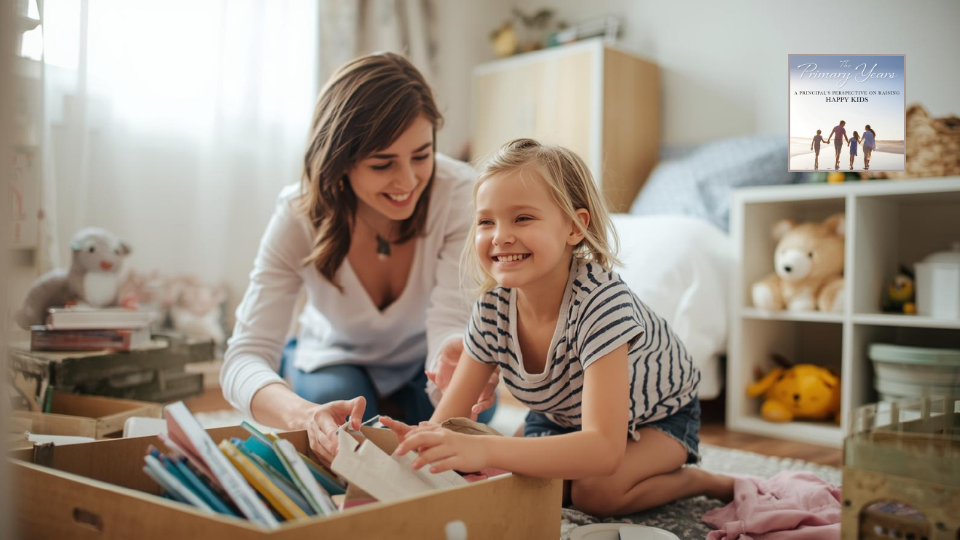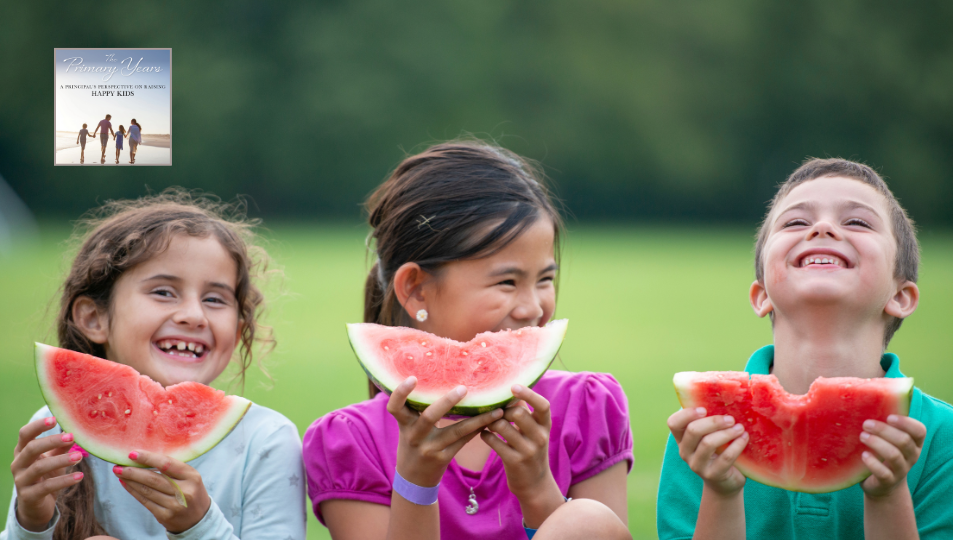
Six gentle ideas that really help an anxious child begin school
Facing school anxiety is about gentle steps, not hard pushes. For every worried child (and parent), here are six peaceful, practical strategies to build real confidence and find their brave for the first day.

A few thoughts to keep in mind late January
The new school term is here. Are you and your child ready to embrace the change? Moving from holiday mode to school routines is more than just packing bags, it's about nurturing growth in every way: social, emotional, intellectual, and physical.

Lets help our children start well
The age-old adage, “Well begun is half done,” holds a special wisdom as the school holidays draw to a close. How a child starts this new chapter can set the tone for the weeks and months ahead, turning apprehension into anticipation and uncertainty into confidence. Gail Smith shares thoughtful strategies to help your family cultivate the art of a good beginning, ensuring a smoother, happier transition into the new school year.

As holidays end what to think about
As the school holidays begin to wind down, a familiar mix of emotions emerges with lingering freedom alongside the gentle pull of the new school year. In this blog, Gail Smith offers gentle, actionable tips to help your child (and you!) warm up to the coming term, focusing on connection, comfort, and taking it one small step at a time.

Sliding Into Holiday Mode: The Christmas Message That Sticks
Let’s create a holiday mode that focuses less on getting and more on giving back. We’ve put together a few simple yet joyful ways to weave generosity into your family’s holidays, because the message that lasts isn’t wrapped in paper, but built in kindness!

Why Boredom Is a Superpower
In a world of constant stimulation, boredom is the surprising gateway to creativity, resilience, and self-discovery. It's not an empty space to fill, but a fertile ground for imagination to grow.

Grandparents: A Special Role in a Modern Childhood
In our technology-driven age, grandparents provide something priceless: a human connection that grounds and guides. They are the storytellers, the wisdom-keepers, and the calm in the storm of modern life, offering support that is both different from and essential to what parents provide. This blog explores on how grandparents leave a lasting, positive imprint on a child's life.

Why Your Child’s Mental Health Matters
What's the one thing that influences your child's ability to learn, build friendships, and navigate challenges? It's not the latest educational toy or a packed extracurricular calendar. It's their mental health. Discover why creating a foundation of emotional safety is the greatest gift you can give your child.

Emotional safety for your child gives them so much hope
A child’s sense of emotional safety shapes their world, how they learn, trust, and grow. By nurturing emotional safety today, you build the foundation for their mental and emotional strength for life.

Why Listening to Your Child Makes All the Difference
We often hear our children without truly listening. But when we pause with phone down and mind present, you will notice that something magical happens: They feel seen. Read on to discover why listening to your child makes all the difference.

Be the Parent Who Models, Listens, and Grows
Kids notice everything, not just what you say, but how you live. The way you show love, handle stress, and treat others teaches them more than words ever could. In this blog, we explore how calm, caring actions can shape your child’s emotional wellbeing in powerful ways.

FEEL SAFE AND BE SAFE IS GOOD MENTAL HEALTH FOR YOUR CHILD
Emotional safety is the foundation of good mental health. When children feel safe with you, their confidence and resilience grow. In this blog, Gail Smith shares simple, practical habits you can build into everyday life to help your child feel secure, supported, and strong.

Why Really Listening to Your Child Matters
Ever find yourself nodding while your child talks, but your mind’s miles away? In this blog, we explore the power of truly listening. Just a few focused minutes can build trust, support mental wellbeing, and deepen your connection, more than you might think. Read on to find out how.

Letting Go, Little by Little: The Power of Gradual Independence
Letting go isn’t easy, but little by little, it can be one of the most empowering things we do as parents. Building independence is a journey for both parent and child, helping grow confidence, resilience, and self-belief along the way. Read on to explore practical ways to encourage independence gradually with Gail Smith.

Growing Big Hearts: Teaching Children Generosity and Compassion
As parents, the way we show compassion in everyday moments helps shape emotionally strong and caring kids. Gail Smith shares simple ways to nurture generosity at home, where small acts can leave a big impact.

The Little Things That Matter Most: How Small Moments Shape Your Child’s World
As parents, we often feel pressured to do something grand to make a real difference. But the truth is, the small, everyday moments leave the deepest imprint. Here are some simple ways you can make a big impact in your child’s life, one little action at a time.

Raise a Hopeful Child: The Power of a Proactive Parent
Tired of always reacting to meltdowns and lost lunchboxes? What if you could shape how your child sees the world instead? In this blog, we explore how small, proactive steps can build resilience and boost your child’s mental health.

Raising a Confident Child in Today’s Classroom: 5 Surprising Ways Parents Can Help
Confidence is a skill, not a trait and it grows with practice, praise, and patience. Every child develops it differently, and that’s okay. Explore the five simple ways to support your child’s confidence in today’s classroom.

Encourage a Wide Net of Friends: Why It Matters.
Friendships are key to a child’s happiness, but relying on just one best friend can lead to heartbreak. Gail Smith highlights why encouraging kids to embrace new friendships is so important.

Five sound reasons why parents should stay in touch with their child’s school throughout the year.
Building relationships with your child’s school, especially their teachers creates a strong foundation for a successful year. Gail Smith shares five key reasons why staying engaged throughout the year benefits both students and parents.